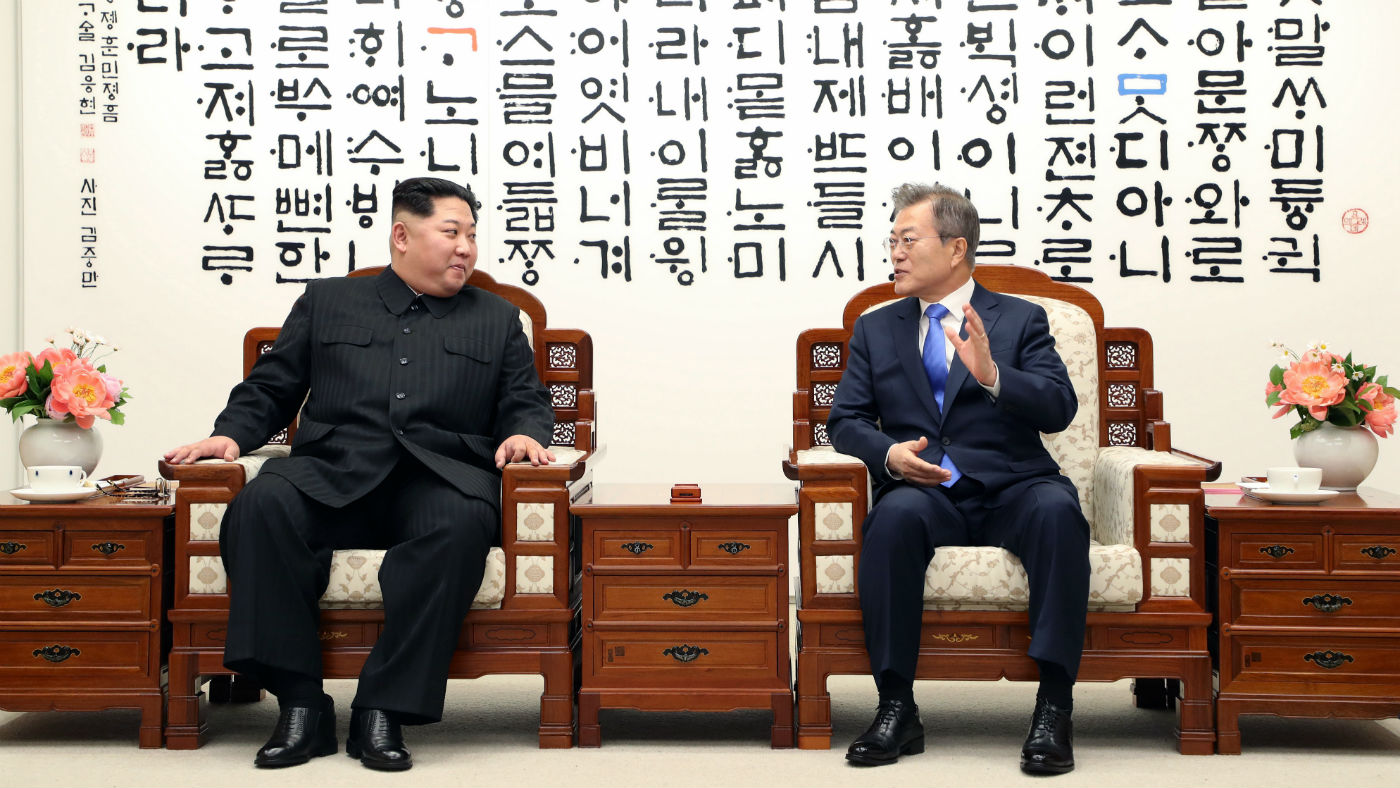South Korea unveils plan for ‘one Korea’ dictionary
PM says that bridging language gap with the North could be a stepping stone to reunification

A free daily email with the biggest news stories of the day – and the best features from TheWeek.com
You are now subscribed
Your newsletter sign-up was successful
The South Korean government is to renew efforts to work with its northern neighbour to create a single Korean dictionary, the country’s prime minister has confirmed.
Lee Nak-yeon announced the news on Hangul Day, on which South Koreans mark the invention of their writing system in 1446 by Sejong the Great.
“We were of one nation when King Sejong invented Hangul. But the Cold War divided the Korean tribe and its territory into two,” he said at a Hangul Day celebration in Seoul, Korean news agency Yonhap reports.
The Week
Escape your echo chamber. Get the facts behind the news, plus analysis from multiple perspectives.

Sign up for The Week's Free Newsletters
From our morning news briefing to a weekly Good News Newsletter, get the best of The Week delivered directly to your inbox.
From our morning news briefing to a weekly Good News Newsletter, get the best of The Week delivered directly to your inbox.
The concept of a unified Korean dictionary was first floated in 2005, but “like other diplomatic efforts it has seen its fortunes rise and fall with the state of inter-Korean relations”, says Quartz. Work on the project never got off the ground, and it was suspended in 2016.
However, thawing diplomatic relations between the two Koreas following April’s landmark talks have bolstered hopes of success.
But the challenges facing the would-be compilers of the unified dictionary are considerable - in fact, they begin with the alphabet itself.
Known as hangul in the South and choson'gul in the North, the 24-character alphabet is revered for its simplicity and ability to survive decades of repression by Japanese colonial rulers in the run-up to the Second World War.
A free daily email with the biggest news stories of the day – and the best features from TheWeek.com
As a result Koreans on both sides of the border are fiercely proud of their writing system, and neither country will be keen to adopt a new name for the alphabet.
That divide is just one of the delicate political and cultural landmines which Korean linguists will have to navigate.
Over seven decades of separation, the Korean language has diverged into northern and southern variants. Although the language remains mutually intelligible, earlier this year, Reuters reported estimates that up to 30% of words are not understood across the entire peninsula.
One major difference is the widespread adoption of English terms in South Korea, while the North has sought to rely on Korean vocabulary.
This caused some issues when the two Koreas fielded a joint women’s ice hockey team at the Winter Olympics in February. North Korean players apparently struggled to understand the English sporting terms used by southern teammates, who in turn were baffled by the Korean neologisms used in the North.
Some differences touch on a cultural divide. While South Korean couples go out on a “date”, a North Korean would ask the object of their affections to “go for a walk”, says The Guardian, a reflection of more conservative social norms in the north.
South Korea’s prime minister acknowledged that “70 years of division is changing the meaning and use of Korean words in the South and the North”, but said he was hopeful that a unified dictionary could prove a crucial stepping stone to wider rapprochement.
“I believe if this kind of thing accumulates, the Koreas can become one, as in the years ruled by King Sejong,” he said.
-
 Political cartoons for February 15
Political cartoons for February 15Cartoons Sunday's political cartoons include political ventriloquism, Europe in the middle, and more
-
 The broken water companies failing England and Wales
The broken water companies failing England and WalesExplainer With rising bills, deteriorating river health and a lack of investment, regulators face an uphill battle to stabilise the industry
-
 A thrilling foodie city in northern Japan
A thrilling foodie city in northern JapanThe Week Recommends The food scene here is ‘unspoilt’ and ‘fun’
-
 Epstein files topple law CEO, roil UK government
Epstein files topple law CEO, roil UK governmentSpeed Read Peter Mandelson, Britain’s former ambassador to the US, is caught up in the scandal
-
 Iran and US prepare to meet after skirmishes
Iran and US prepare to meet after skirmishesSpeed Read The incident comes amid heightened tensions in the Middle East
-
 Israel retrieves final hostage’s body from Gaza
Israel retrieves final hostage’s body from GazaSpeed Read The 24-year-old police officer was killed during the initial Hamas attack
-
 China’s Xi targets top general in growing purge
China’s Xi targets top general in growing purgeSpeed Read Zhang Youxia is being investigated over ‘grave violations’ of the law
-
 Panama and Canada are negotiating over a crucial copper mine
Panama and Canada are negotiating over a crucial copper mineIn the Spotlight Panama is set to make a final decision on the mine this summer
-
 Why Greenland’s natural resources are nearly impossible to mine
Why Greenland’s natural resources are nearly impossible to mineThe Explainer The country’s natural landscape makes the task extremely difficult
-
 Iran cuts internet as protests escalate
Iran cuts internet as protests escalateSpeed Reada Government buildings across the country have been set on fire
-
 US nabs ‘shadow’ tanker claimed by Russia
US nabs ‘shadow’ tanker claimed by RussiaSpeed Read The ship was one of two vessels seized by the US military